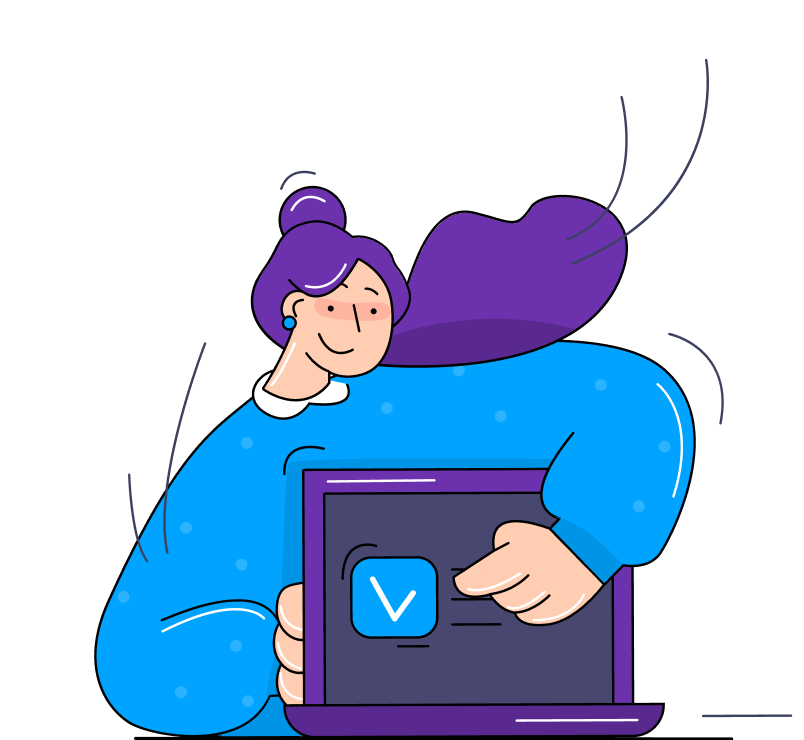ChatBot API's
ChatBot's are accessible via REST API. End points to deployed ChatBots are publicly accessible unless the customer has chosen to attach a Smarter API key. Http requests should substantially conform this command structure:
console
curl --location 'https://example.3141-5926-5359.api.smarter.sh/chatbot/' \
--header 'x-api-key: api-key-string-of-around-64-hashed-characters' \
--header 'Content-Type: application/json' \
--data '{
"messages": [
{
"role": "user",
"content": "what is FMLA?"
}
],
"chat_history": [
{
"message": "Hello, How can I help you?",
"direction": "incoming",
"sentTime": "11/16/2023, 5:53:32 PM",
"sender": "system"
}
]
}'
ChatBots can also run in pre-production 'sandbox' mode from inside the Smarter web console.
Management
There are Django
manage.py
commands for the complete ChatBot lifecycle, namely, for deploying the ChatBot so that it can begin receiving and responding to http requests. To access
manage.py
you'll need ssh access to the Smarter Bastion server, a managed Ubuntu Linux AWS EC2 instance that is pre-configured connect to the Kubernetes cluster via an ASCII gui application named
k9s
. From k9s you can navigate to any running 'smarter' application pod, whereupon you access a bash shell.
Contact Lawrence McDaniel ( lawrence@querium.com ) or Kent Fuka ( kent@querium.com ) if you need Smarter Bastion server access.
Features are continuously added to the Smarter web console, with the mid-term goal of deploying a minimal UX that gives customers autonomy to manage all aspects of a ChatBot. Meanwhile, there's Django Admin to cover any functionality gaps.
Domain Name Resolution
The Smarter application stack provides consistent behavior for either of three different domain name styles
- Default ChatBot domain names: [subdomain].[####-####-####].[environment].smarter.sh/chatbot/
- Customer's custom domain names: [subdomain].example.com/chatbot/
- The Smarter API: /api/v0/chatbots/[int]/[ChatBot.name]
Secondarily, it also gracefully adapts to alternatives like
localhost
,
127.0.0.1
and any host names that are conjured up in unit tests.
URL Parsing and Routing
In light of the multiple naming schemes, mapping hosts and urls to a ChatBot is not trivial. Note the following code resources for working with chatbot urls:
-
smarter.apps.chatbot.models.ChatBotHelper: Maps a url to its ChatBot, Plugin list, Account and User objects. -
smarter.lib.django.validators.SmarterValidator: Low-level url parsing features. -
smarter.common.conf.settings: A singleton that provides settings values for the environment and base customer API domains.
Default Domain
The default domain for each ChatBot is accessible regardless of whether the customer has also implemented a custom domain.
example: https://example.3141-5926-5359.beta.api.smarter.sh/chatbot/
where
-
'example' == ChatBot.name -
'3141-5926-5359' == ChatBot.account.account_number -
'beta.api.smarter.sh' == smarter_settings.customer_api_domain -
/chatbot/is a URL endpoint defined in smarter/urls.py and resolves to a Django View that invokes Chat with an Account object and a List of Smarter Plugin objects.
Custom Domain
Customers can optionally configure a custom domain for their account, mapping individual chatbots to DNS subdomain records aliased to the master Kubernetes ingress controller for the platform. Smarter provides
manage.py
admin commands for managing the complete lifecycle of customer custom domain resources.
example: https://sales.api.smarter.querium.com/chatbot/ where
-
'api.smarter.querium.com == chatbot.custom_domain'is a ChatBotCustomDomain object -
'sales'is a verified A record (ie a subdomain) in the AWS Hosted zone for the customer domain -
ChatBotCustomDomain.is_verified == True. An asynchronous task verifies the domain NS records. -
/chatbot/is the same URL endpoint used by default domains.
When using a custom domain,
ChatBot.hostname == ChatBot.custom_domain
once the following conditions are satisfied:
-
ChatBotCustomDomain.is_verified == True. An asynchronous task verifies the domain NS records. -
ChatBot.deployed==True. This is a customer-managed setting.
Django Application Configuration
There are multiple Django configuration implications to the API domain naming conventions outlined in this document. These require customizations to url routing within Django, as well as customizing management of
ALLOWED_HOSTS
, CORS, CSRF, ssl-certificates, and multiple kinds of Kubernetes resources.
ALLOWED_HOSTS
For Django to accept http requests from a domain, it must be included in Django's
ALLOWED_HOSTS
setting which is managed by Django middleware that we've subclassed as
smarter.apps.chatbot.middleware.security.SecurityMiddleware
in order to append API domain names to
ALLOWED_HOSTS
at run time.
CORS
We subclassed the standard
corsheaders
as
smarter.apps.chatbot.middleware.cors.CorsMiddleware
in order to performantly append API domain names to
CORS_ALLOWED_ORIGINS
at run time..
Cross-Site Request Forgery
We subclassed Django's csrf library as
smarter.apps.chatbot.middleware.csrf.CsrfViewMiddleware
in order to append API domain names to
CSRF_TRUSTED_ORIGINS
at run time.
TLS/SSL Certificates
The certificates issued and managed by
cert-manager
in Kubernetes for each environment only support the first level of subdomain, implemented as a wildcard. For example,
*.beta.api.smarter.sh
. Therefore, API domains like for example,
example.3141-5926-5359.api.smarter.sh
, fall outside of this scheme. Smarter therefore implements asynchronous tasks for creating per-customer and per-chatbot certificates and the requisite DNS TXT challenge records.
Kubernetes Ingresses
Similarly, we also have to create an individual Ingress resource for each API domain.
AWS Hosted Zones
Custom API domain names require a dedicated AWS Hosted Zone in order to generate the NS records. Note that customers are responsible for adding the NS records to the DNS host for their root domain name.


